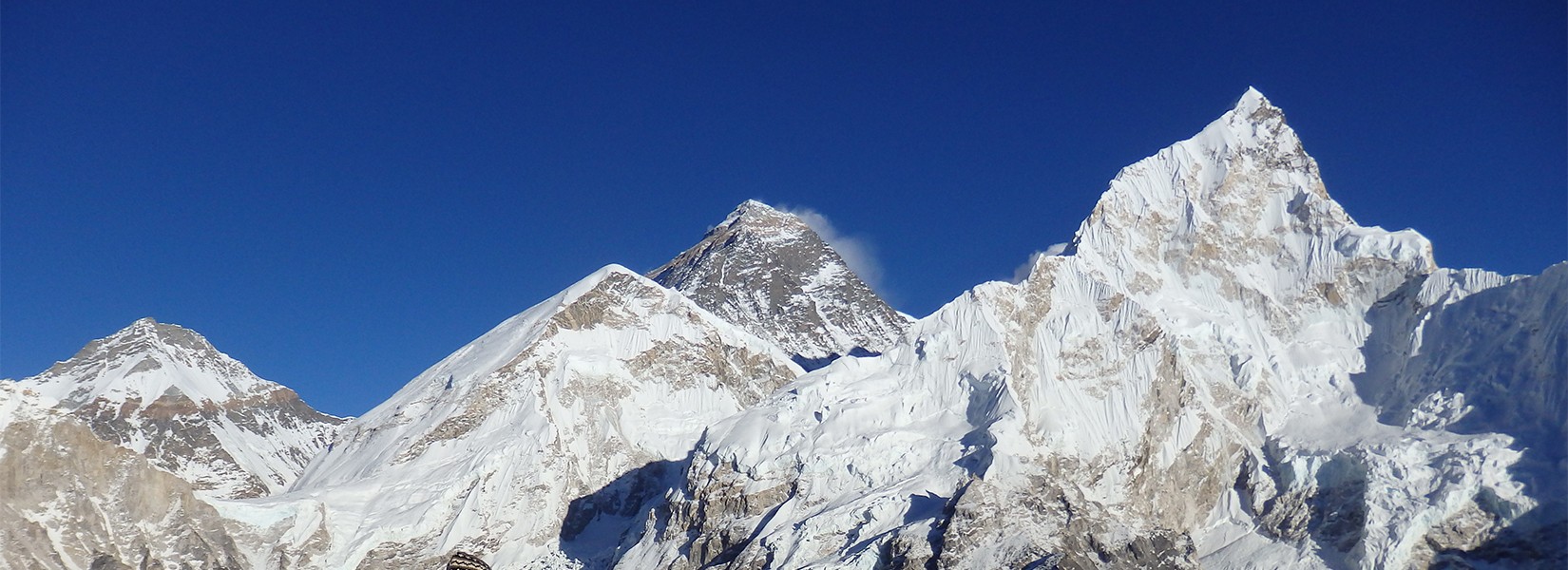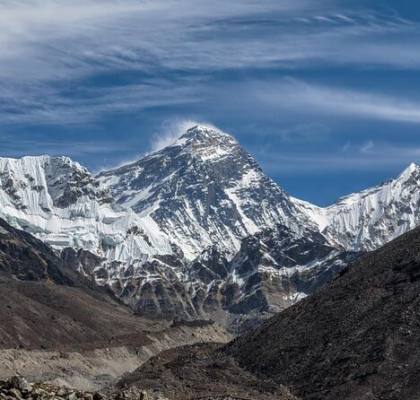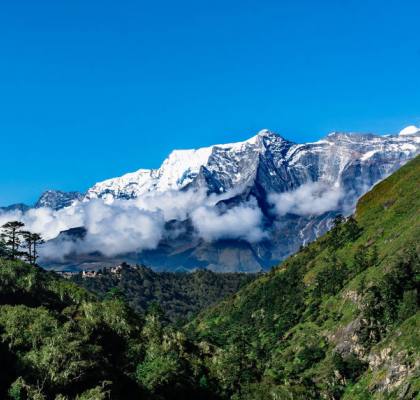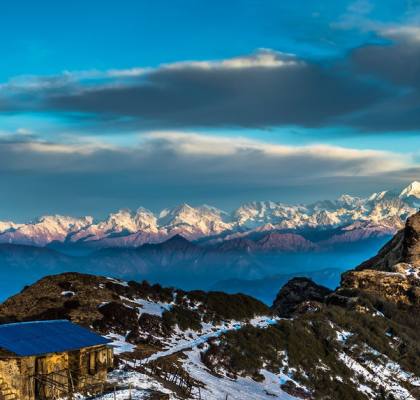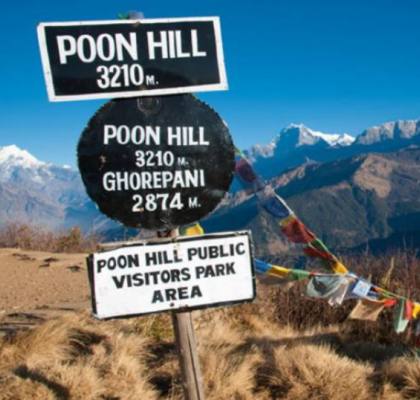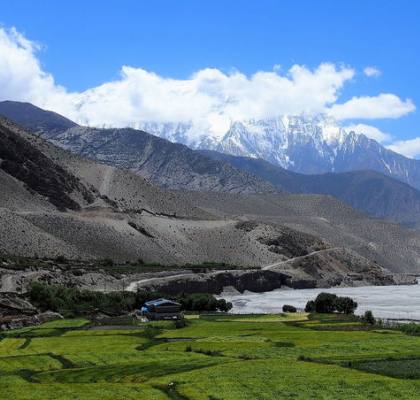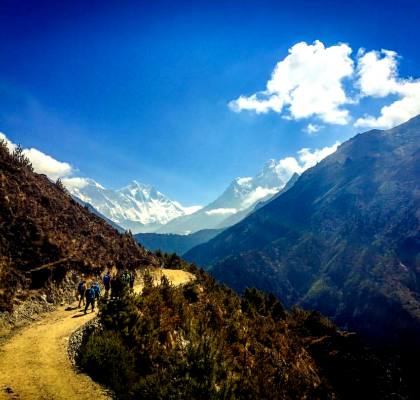Everest Base Camp Trek Alone
Trekking alone to Everest Base Camp might sound overwhelming to many travel lovers out there, but trust us it is possible. No doubts, hundreds and thousands of people go on Everest Base Camp Trek every year to witness the spectacular beauty of the Himalayas. However, most of them are group treks organized by Travel Agencies and lead by guides. Well, trekking with the travel agency makes the journey smooth and hassle-free. All the permits and arrangements are done before the commencement of your trip. Likewise, your guide and porter will make the journey informative and easier.
But, regardless of all the little comforts that you will have with a travel agency, you will miss the adventure and thrill, you might get to experience while traveling alone. You know the little things like finding paths on your own, interacting with locals to know about the place, and that great feeling to conquer Everest Base Camp Trek alone. Trekking alone, especially in the higher elevation and most secluded region of the world, does bring many pros and cons with itself. It is very important to know all the major things before embarking on journeys like this alone.
Here, in this blog, you will get to learn if it is possible or not to go on Everest Base Camp Trek alone; and if yes what are the things that you should be prepared ahead before the commencement of your trip, and what are the problems you might face while trekking alone.
Everest Base Camp Trekking route
Many routes lead to Everest Base Camp. As per your budget and time, you can design your itinerary that will suit you the best. If you are short on time, then you can also add a helicopter ride to your itinerary that will either take you directly to EBC or take you out of EBC to Kathmandu. However, this is an expensive option compared to the general itinerary.
One of the most common itineraries goes like this:
Day 1: Arrival in Kathmandu
Day 2: Sightseeing and preparation day (optional)
Day 3: Fly to Lukla and trek to Phakding
Day 4: Trek to Namche Bazar
Day 5: Acclimatization day at Namche Bazar
Day 6: Trek to Tengboche
Day 7: Trek to Dingboche
Day 8: Acclimatization day at Dingboche
Day 9: Trek to Lobuche
Day 10: Hike to Everest Base Camp through Gorak Shep and trek back to Gorak Shep for night stay
Day 11: Hike to Kala Patthar and trek back to Pheriche
Day 12: Trek to Namche Bazar
Day 13: Trek to Lukla
Day 14: Fly back to Kathmandu
Day 15: Departure
Best time for Everest base camp trek
The best time to go on EBC Trek is during Autumn and Spring seasons. These are the peak season and undoubtedly the most crowded time of the year. Even the trails will be full of fellow trekkers, you will not find yourself alone and lost. Probably the best time to go on solo Everest Base Camp Trek.
Talking more about the season, March to April (spring) and October to November (autumn) are the months when the weather is at its most stable condition. The climate is neither too hot nor too cold. Likewise, the region also gets bloomed up with hundreds of rhododendrons and other wildflowers.
Monsoon is a no-no time of the year to go on EBC Trek. The trails are slippery, bugs are out there, and views are not cleared. Similarly, Winter brings lots of heavy snowfall. The climate is super cold, and views might get unclear due to fog. However, photographers love to visit Everest Base Camp during winter for best shots.
Altitude Sickness during the Everest Base Camp Trek
Everest Base Camp Trek does carry chances of getting altitude sickness. Also known as Acute Mountain Sickness (AMS), it is one of the common illness trekkers go through during the trek. Moving rapidly and not keeping yourself hydrated during the trek is the main cause behind altitude sickness. So, the best way to avoid AMS is by adding enough acclimatizing day in between the trek, drink plenty of water, and avoid alcoholic drinks.
If you are getting problem in sleeping, feeling nauseous, and is lost in-breath, then immediately drop down to lower elevation as it is the symptoms of altitude sickness. Rest in the lower altitude before continuing your journey ahead. Also, keep in mind that altitude sickness can happen to anyone regardless of their age, health, and physical fitness.
Everest Base Camp Trek difficulty
Everest Base Camp Trek is a difficult journey. The trail includes many ascends, descends, crossing of rivers, streams, and passes while trekking on rugged & glacial paths. Plus as the elevation gets higher, the air also gets thinner, the most difficult thing to overcome. Yet, you can do EBC Trekking without any problem and prior trekking experience if you got a proper itinerary.
The most difficult time is when you ascend from Phakding to Namche Bazar. The trail from Phakding to Namche Bazar includes long steep ascend on a forested and rugged path that makes the trek challenging. Other than this, you will find little difficulty while heading from Lobuche to Everest Base Camp because you have to walk on the glacial path.
Accommodation and Food during Everest Base Camp Trekking alone
Here comes one of the cons that you will face while trekking alone to EBC, accommodation, and food. As the lodges are not priorly booked for you, you might not get proper space for you to spend the night mostly during the peak time of the year. Most of the lodges and guesthouses are booked in advance by the travel company, therefore it can be challenging to find an empty room for you. Another thing is the room is usually on a twin-sharing basis that might make you uncomfortable to share a room with a stranger. Look for the best, you may get a single room, but chances are low.
Rooms are generally small and have only a few pieces of furniture with common washrooms. You can find what we say here is a luxurious lodge, but the price is way too high for budget traveling. For food, you can get a wide range of food especially in Namche Bazar and Lukla. Dishes like rice, curries (veg/non-veg), veggies, bread, bakery items, momo, pizza, noodles, sandwich, thukpa, etc are found. You can also find soft drinks and other snacks on the trail, but as the elevation gets higher, the price also gets higher.
Permits to go on Everest Base Camp Trek alone
There are few permits that one need to get if he/she is going on Everest Base Camp Trek alone. The first one is Trekkers’ Information Management System (TIMS) and the second one is the Sagarmatha National Park entry permit. It usually costs around USD 20 for TIMS and USD 30 for national park permit for foreign trekkers, and you can get it from Nepal Tourism Board.
However, from October 1st, 2017, you do not need to get these permits. Instead of that all the trekkers either trekking in group or individual have to pay an entry fee of NPR 2,000 each to enter in Khumbu region, which is part of the trek. Do a little more research and ask around the locals for more clear information.
Things You Should Know Before Going On Everest Base Camp Trek Alone
You can expect 25 USD to a maximum of 50 USD per day that includes your three meals, tea, coffee, and lodging
Make sure to carry enough hand cash with yourself as you will not find ATM machines after Namche Bazar
Always check the weather thoroughly
Do carry insects repellent
Get a nice map
Interact with locals and ask if you find yourself in a dilemma
Don't rush and trek safely
Packing List for Solo Everest Base Camp Trek
T-shirts and Pants (Innerwear)
Thermal Wears
Breathable Underwears
Trekking Pants/Shoes/Socks
Insulating Jacket
Rain jacket
Warm woolen Gloves
Sun hat/woolen hat
Goggles
Sleeping bag
Trekking Pole
First aid kit
Toiletries (toilet paper, hand sanitizer, sunblock, towel, soap, shampoo, sanitary napkins, etc)
Miscellaneous (camera, extra batteries, journal, cards, bars, snacks, water purification tablets, etc)
If you looking to book with a company, We are always ready to organize your lifetime trip to Mount Everest Base Camp
Recent Post
Related Blog(s)
- Trekking to Everest Base Camp
- Everest base camp trek in October
- Why should you go trek in Nepal ?
- Take Pleasure from Himalayas Scenic View in Nepal
- Visit Nepal
- Preserve the natural beauty of mountains in trekking
- Easy and Short Trekking Trail in Nepal
- Host Trekking and Visit Interesting Adventure Places
- Obtain guide from trekking experts to host the adventure
- Tsum Valley And Manaslu Trek – Famous Trekking Tour In Nepal
- Enjoy the Himalayas Journey with the Best Trek
- Acquire essential guidance to make trekking in Himalaya
- Trekking in Nepal
- Trekking in Nepal for Beginners
- Everest Base Camp Altitude Sickness
- Best time for trekking in Nepal
- Trek to Everest Region

